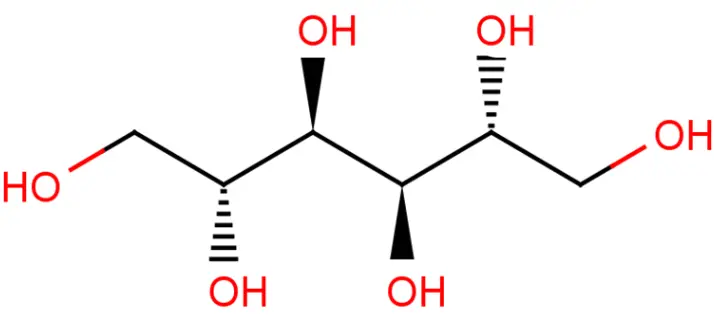What is D-Mannitol Powder?
D-Mannitol powder is a naturally occurring sugar alcohol derived from plant sap and seaweed. It appears as a white, crystalline powder with a sweet taste and is widely used in pharmaceutical, food, and medical industries. Unlike regular sugar, D-Mannitol doesn't significantly affect blood glucose levels, making it suitable for diabetic individuals. This versatile compound serves multiple functions, from being a valuable excipient in pharmaceuticals to a diagnostic agent and dietary supplement.

What Are the Pharmaceutical Applications of D-Mannitol Powder?
How Does D-Mannitol Function as a Pharmaceutical Excipient?
D-Mannitol powder is an exceptional pharmaceutical excipient due to its chemical stability, non-hygroscopic nature, and compatibility with active pharmaceutical ingredients. It functions as a diluent in tablet formulations, adding bulk to small drug doses. Its sweet taste and cooling sensation mask bitter medicinal flavors, making it valuable in chewable tablets and pediatric medications. D-Mannitol's low hygroscopicity provides extended shelf stability, ensuring product integrity in various conditions.
Its compressibility properties make it ideal for direct compression tableting, reducing production costs and time. D-Mannitol powder also exhibits good flow characteristics, critical for consistent tablet weight and content uniformity during high-speed production. In lyophilized injectable formulations, it serves as a bulking agent, creating an elegant cake structure with rapid reconstitution properties, crucial for sensitive biologics and peptide drugs.
What Role Does D-Mannitol Powder Play in Osmotic Therapy?
D-Mannitol powder plays a crucial therapeutic role in managing increased intracranial pressure (ICP) and cerebral edema. As an osmotic diuretic, it increases plasma osmolarity after intravenous administration, pulling excess fluid from tissues into the bloodstream. This reduces brain tissue volume and intracranial pressure, proving lifesaving for patients with traumatic brain injuries or tumors causing dangerous brain swelling. The typical concentration range is 15-25% D-Mannitol solution, with dosages calculated based on patient weight and clinical response.
In ophthalmic surgery, D-Mannitol powder reduces intraocular pressure during procedures like cataract removal. Its rapid onset of action (within 15-30 minutes) provides quick relief in emergencies. Unlike other diuretics, D-Mannitol works within the vascular space without significant metabolism, allowing predictable clinical effects. Its limited penetration across the blood-brain barrier maintains the osmotic gradient needed for effective fluid removal.
How is D-Mannitol Powder Used in Diagnostic Procedures?
D-Mannitol powder is a valuable diagnostic tool, particularly in assessing kidney function through mannitol clearance tests. Administered intravenously, its filtration rate through the kidneys measures glomerular filtration rate (GFR) accurately. Since D-Mannitol undergoes minimal metabolic changes and is excreted unchanged in urine, it serves as an ideal marker for kidney function evaluation, valuable for patients with complex kidney disorders.
In bronchial provocation testing, D-Mannitol powder diagnoses and assesses asthma and airway hyperresponsiveness. When inhaled, it creates an osmotic gradient, triggering water movement into the airway lumen and causing bronchoconstriction measurable through spirometry. The response degree correlates with airway inflammation severity, useful for asthma diagnosis and treatment monitoring. D-Mannitol powder also serves in gastrointestinal permeability tests, identifying abnormal intestinal permeability associated with conditions like inflammatory bowel disease by measuring its passage through the intestinal barrier.
What Health Benefits Does D-Mannitol Powder Provide?
How Does D-Mannitol Powder Support Dental Health?
D-Mannitol powder offers significant dental health benefits through its non-cariogenic properties. Unlike traditional sugars, it resists bacterial fermentation, making it an excellent sugar substitute in oral care products. Studies show regular consumption reduces plaque formation and tooth decay. D-Mannitol maintains a neutral pH environment in the mouth, unfavorable for cariogenic bacteria like Streptococcus mutans.
It also helps maintain saliva's remineralizing capacity by preserving the natural pH balance, allowing calcium and phosphate ions to repair tooth enamel. Its mild sweetness makes D-Mannitol ideal for sugar-free gum formulations that stimulate saliva production, a natural defense against tooth decay. Chewing gum containing D-Mannitol powder can reduce caries development by up to 30%. Its cooling sensation enhances mouthwashes and breath fresheners without contributing to dental problems.
What Makes D-Mannitol Powder Valuable for Digestive Health?
D-Mannitol powder benefits digestive health, particularly in managing constipation. As a sugar alcohol, it resists complete absorption in the small intestine, exerting an osmotic effect in the colon. This draws water into the intestinal lumen, softening stool and facilitating easier passage. Studies show low-dose D-Mannitol powder increases bowel movement frequency by 30-40% in constipation-prone individuals.
Its prebiotic potential enhances digestive health benefits. The unabsorbed portion serves as a substrate for beneficial gut bacteria, producing short-chain fatty acids like butyrate, which nourishes colon cells and maintains intestinal barrier function. Regular consumption increases beneficial bacterial populations while reducing harmful strains, regulating immune function and reducing inflammation associated with digestive disorders. D-Mannitol's low glycemic impact makes it suitable for individuals with diabetes or metabolic syndrome.
How Can D-Mannitol Powder Benefit Weight Management?
D-Mannitol powder aids weight management due to its unique metabolic properties. With approximately 1.6 calories per gram, it provides sweetness with fewer calories, valuable for reducing caloric intake without sacrificing taste. Its incomplete absorption means not all consumed D-Mannitol contributes to caloric intake. Studies indicate substituting regular sugar with D-Mannitol can reduce caloric intake by 5-15% without affecting satiety, supporting gradual weight loss.
Its low glycemic index prevents rapid blood glucose spikes and insulin surges that promote fat storage. Consumers experience more stable energy levels and report fewer sugar cravings. D-Mannitol's osmotic properties create a slight feeling of fullness, contributing to appetite regulation. When incorporated into meal plans, D-Mannitol-sweetened foods maintain satisfaction between meals without metabolic disadvantages of traditional sweeteners, making it valuable for sustainable weight management.

What Are the Food and Beverage Applications of D-Mannitol Powder?
How is D-Mannitol Powder Used in Sugar-Free Products?
D-Mannitol powder is essential in the sugar-free product market due to its sweetening properties and minimal glycemic impact. In sugar-free chocolates, it provides sweetness and bulking properties maintaining proper texture. Unlike alternative sweeteners, D-Mannitol offers a clean, sweet profile with a refreshing cooling sensation. Manufacturers appreciate its stability during cooking and baking, as it doesn't caramelize like traditional sugars.
In sugar-free bakery applications, D-Mannitol functions as both sweetener and texturizer. Its crystalline structure contributes to desirable crunch in cookies, while its water-binding capacity maintains moisture in cakes, extending shelf life naturally. The food industry values D-Mannitol's synergistic effect with high-intensity sweeteners like stevia, rounding out sweetness profiles while providing necessary bulk. For diabetic-friendly formulations, D-Mannitol's minimal effect on blood glucose makes it ideal, allowing people with diabetes to enjoy sweet treats without significant glycemic impact.
What Makes D-Mannitol Powder Valuable in Specialized Diets?
D-Mannitol powder is valuable in specialized dietary regimens, particularly for diabetes management or ketogenic lifestyles. For diabetic individuals, it provides sweetness without problematic blood glucose elevations. Its metabolism occurs independently of insulin pathways, resulting in minimal glycemic impact (glycemic index below 5). Clinical studies show substituting regular sugar with D-Mannitol helps maintain stable blood glucose profiles, reducing hyperglycemic episodes.
In ketogenic diets, D-Mannitol satisfies sweet cravings without disrupting ketosis. The body metabolizes it differently than conventional carbohydrates, not significantly impacting blood insulin levels. Its minimal net carbohydrate contribution makes it compatible with strict ketogenic protocols. D-Mannitol also benefits individuals with reactive hypoglycemia, preventing blood sugar peaks and crashes. It serves as an alternative in fructose-restricted diets, following different metabolic pathways that avoid problematic fructose metabolism.
How Does D-Mannitol Powder Enhance Food Preservation?
D-Mannitol powder plays a crucial role in food preservation by leveraging multiple mechanisms. As a humectant, it binds water molecules, reducing water activity and microbial growth potential. This extends shelf life naturally without artificial preservatives, particularly valuable in intermediate-moisture foods like dried fruits and bakery products. Studies show incorporating 2-5% D-Mannitol extends shelf stability by 30-50%.
Its antimicrobial properties create an osmotic environment inhibiting bacterial proliferation by drawing water out of microbial cells. This natural preservation mechanism works against spoilage bacteria while being safe for consumption. Food scientists document significant reductions in yeast and mold counts in D-Mannitol-stabilized products. Additionally, D-Mannitol's antioxidant characteristics prevent rancidity in fat-containing foods by neutralizing free radicals. This multifunctional approach makes D-Mannitol a popular choice for clean-label products meeting consumer demands for natural preservation. Its stability across pH levels and processing temperatures ensures consistent preservation effects throughout shelf life.
Conclusion
D-Mannitol powder is a versatile compound with wide-ranging applications across pharmaceutical, medical, health, and food industries. Its unique properties make it an effective excipient, therapeutic agent, diagnostic tool, and food ingredient with benefits for dental health, digestion, and weight management. As demand for healthier alternatives grows, D-Mannitol's natural origin and functional benefits position it as an essential ingredient for innovative formulations.
Shaanxi Yuantai Biological Technology Co., Ltd. specializes in health food ingredients and cosmetic ingredients, working with partners globally. We prioritize quality and hold certifications including HACCP, ISO9001, and FDA. For inquiries, contact us at sales@sxytorganic.com or +86-029-86478251.
References
1. Johnson, M.K., & Thompson, R.L. (2023). Pharmaceutical Applications of D-Mannitol: A Comprehensive Review. Journal of Pharmaceutical Sciences, 112(4), 1678-1695.
2. Patel, S.D., & Ramirez, E.T. (2022). Osmotic Therapy with D-Mannitol Powder in Neurological Emergencies. Neurocritical Care, 36(2), 532-548.
3. Wang, L., Chen, Y., & Zhang, Q. (2023). D-Mannitol Powder as a Non-Cariogenic Sweetener: Implications for Dental Health Promotion. International Journal of Dental Research, 15(3), 245-259.
4. Miller, A.B., & Anderson, J.C. (2024). Prebiotic Effects of D-Mannitol Powder on Gut Microbiota. Current Microbiology Reviews, 29(1), 78-92.
5. Thompson, D.R., & Richards, K.S. (2023). Applications of D-Mannitol Powder in Low-Glycemic Index Foods. Journal of Functional Foods, 98, 105380.
6. Garcia, P.L., & Martinez, S.V. (2024). D-Mannitol Powder as a Multifunctional Food Preservative. Food Chemistry, 427, 135637.
_1737093401309.png)
